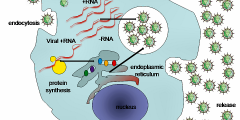Coronavirus and mental health: Risks, protective factors and care
July 2, 2021
This is a guest post by Dr Rusi Jaspal who is Professor of Psychology at Nottingham Trent University in the UK. E-mail: rusi.jaspal@ntu.ac.uk Twitter: @ProfRJaspal *** For several years, my colleagues and I have studied the effects of major social change on people’s sense of identity and psychological wellbeing. We have done so primarily through …
Covid, consensus and conspiracy: Mapping a change in narrative
June 25, 2021
I have written about the concept of consensus before, in the context of climate change. Now it’s time to write a few words on how consensus is used as a concept in the context of covid, or more precisely, in the debate about the origins of the coronavirus. The emerging literature surrounding this origin story …
From stigma to sigma? The covid variant naming conundrum continues
June 3, 2021
On 31 May the World Health Organisation tweeted: “Today WHO has announced a new naming system for key #COVID19 variants. The labels are based on the Greek alphabet (i.e. Alpha, Beta, Gamma, etc), making them simple, easy to say and remember.” In her retweet of that tweet Alice Roberts said “…delta, epsilon, zeta, eta, theta, …
Lockdown fatigue: A tale of two discourses
January 22, 2021
A while ago I wrote a brief post on ‘lockdown words’, amongst them ‘lockdown fatigue’. At the time I hadn’t noticed all the other quasi-synonyms, apart from ‘lockdown lethargy’. Over time more words crept past my horizon: behavioural fatigue, pandemic fatigue, isolation fatigue, quarantine fatigue and so on. In the UK, we are now in …










